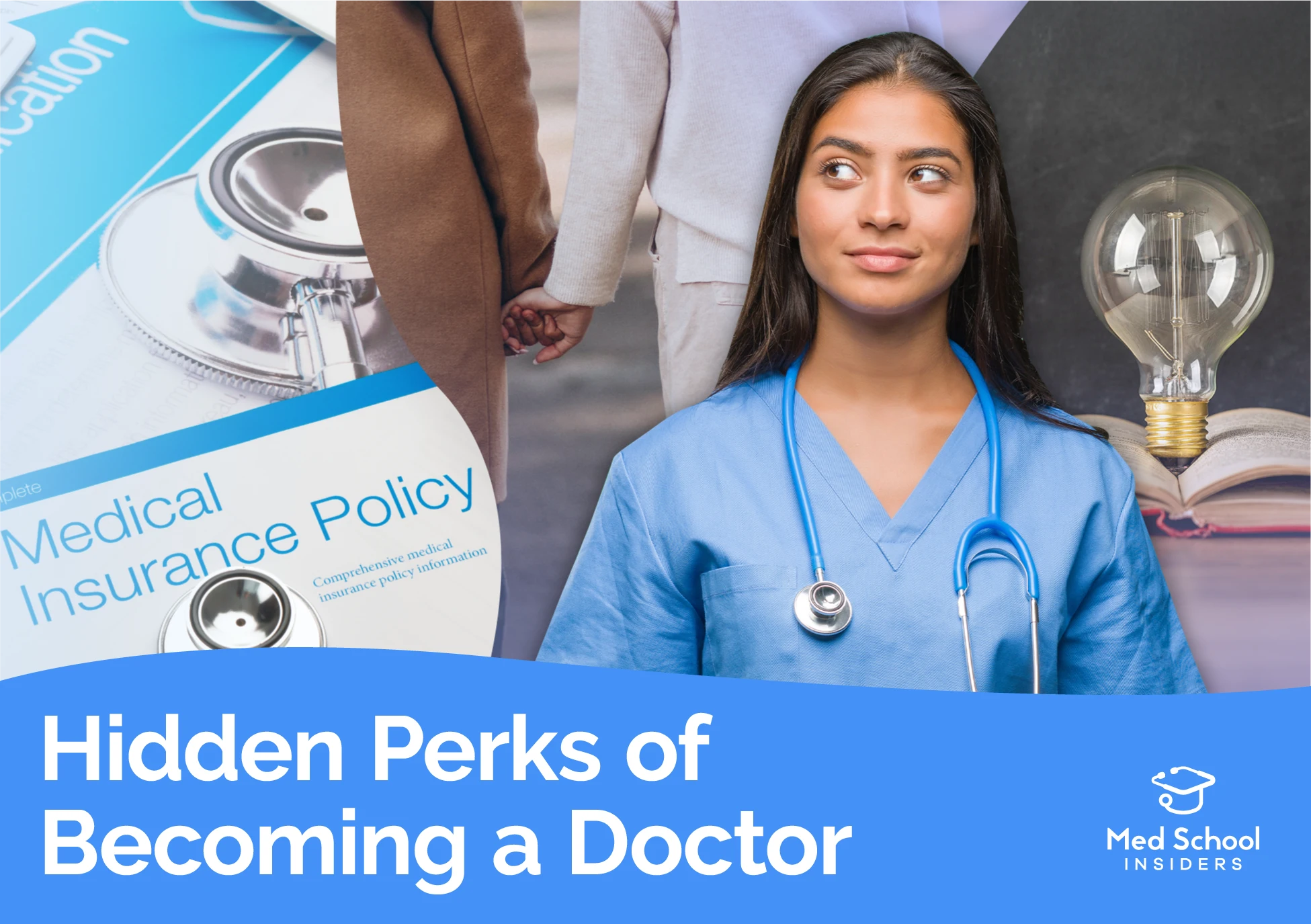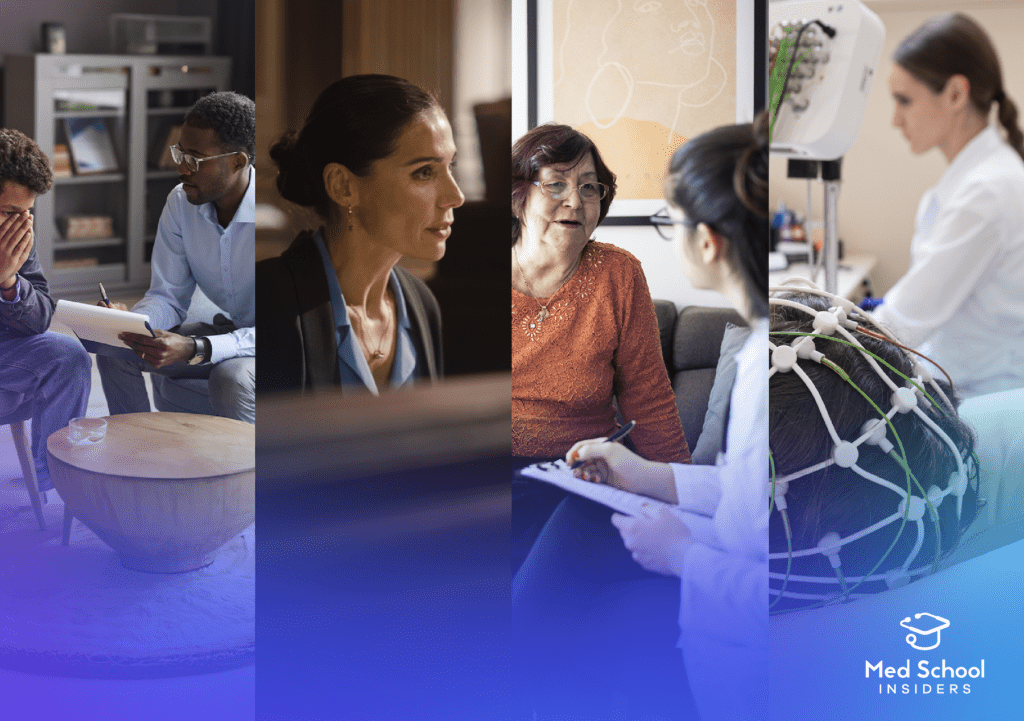Everyone knows doctors make good money, have job security, and get respect. But while everyone obsesses over physician salaries and prestige, they’re missing the hidden advantages that come with being a doctor.
Today, we’re covering the hidden perks of being a doctor that nobody talks about—from social superpowers to advantages in the bedroom that’ll make you see medicine in a completely different way.
1 | Bedroom Advantages
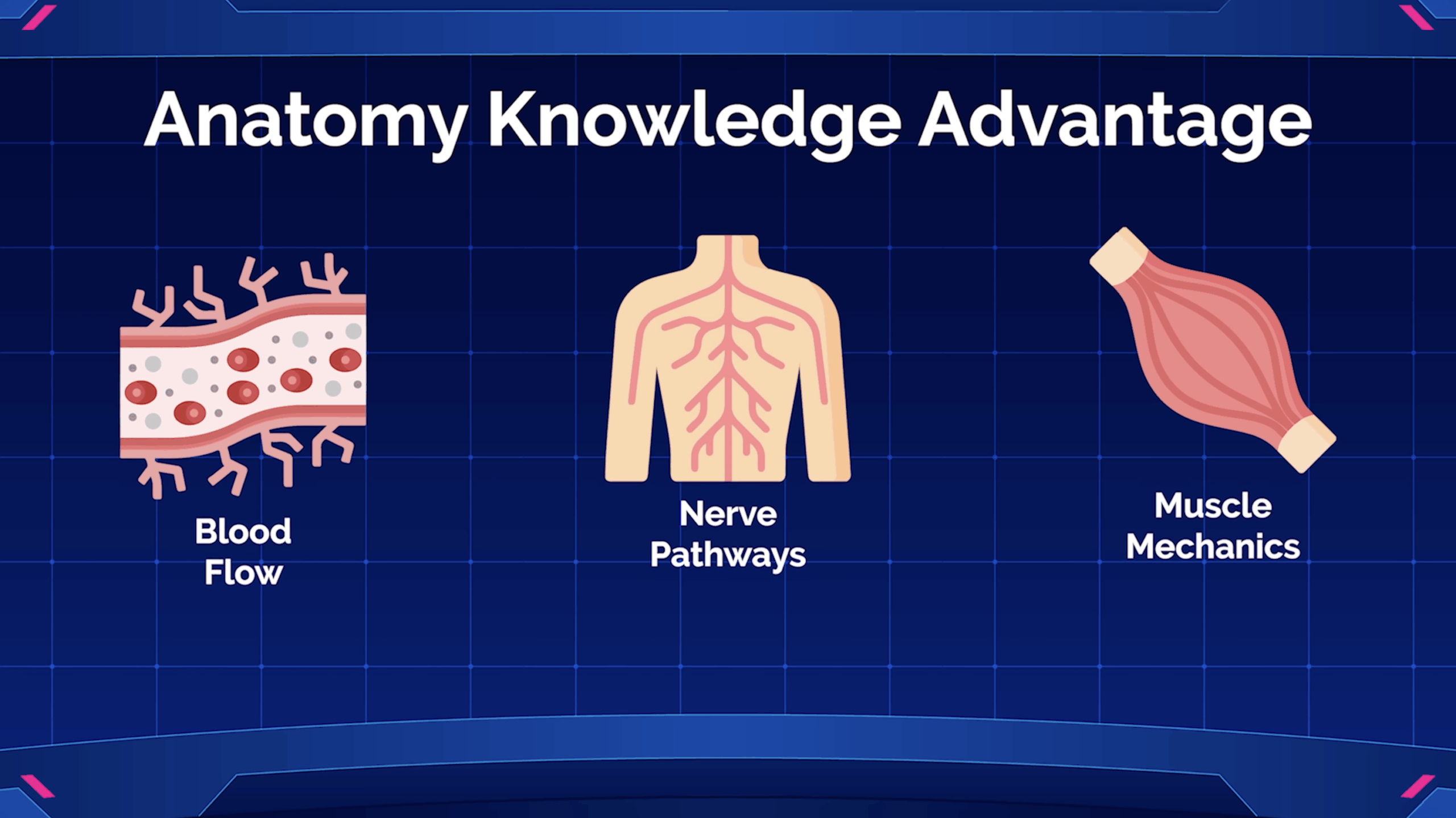
Let’s start with something medical school definitely doesn’t advertise: doctors have a serious advantage when it comes to intimate relationships.
No matter your gender, anatomy knowledge has its perks in the bedroom. Doctors understand what everything is, how things work, and where everything goes. And that’s more than can be said for most of the people you might date.
You’ll know the difference between the clitoris and the urethra—something which, unfortunately, is a lot to ask of the general population. You’ll understand blood flow, nerve pathways, and muscle mechanics in ways that translate to being a significantly better romantic partner.
Plus, you can actually explain to your partner what’s happening with their body instead of just fumbling around hoping for the best. It’s like having a user manual for human intimacy that most people never read.
But anatomy knowledge isn’t just useful in private—it also makes you a family hero.
2 | Family Medical Hero
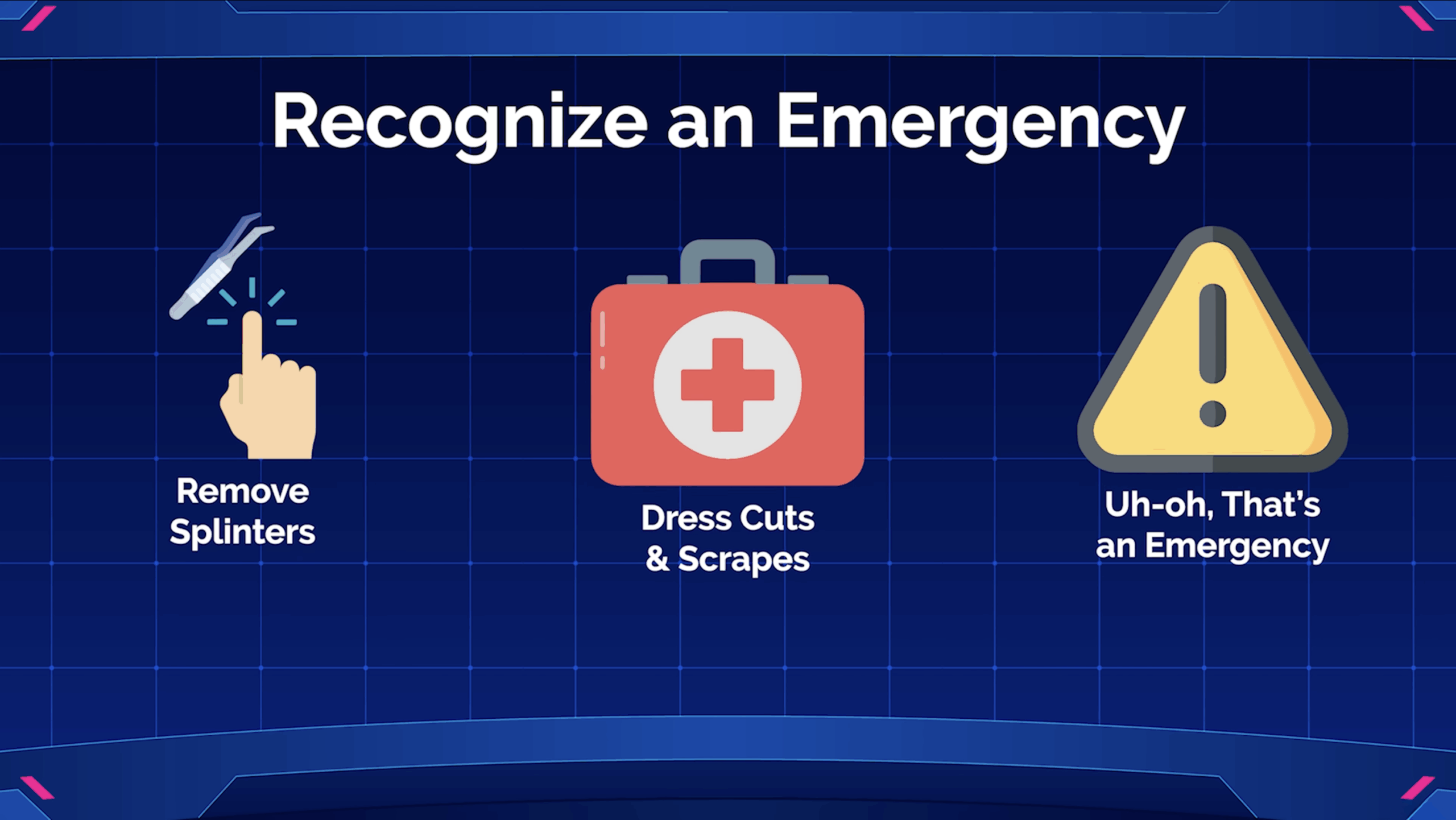
The second perk is becoming your family’s medical hero.
While we are in no way suggesting you can ever replace your family and friends’ own doctor or specialist, it’s incredibly reassuring for your loved ones to hear that their cut doesn’t require stitches, their chest pain isn’t a heart attack, or that their baby’s rash is just acne.
No matter what specialty you choose, all doctors have basic medical knowledge. You can remove splinters, properly dress minor cuts and scrapes, and most importantly, know the signs to look for when someone’s life could be in danger, like recognizing the early signs of a stroke or heart attack.
Most doctors are BLS and ACLS trained, so you’ll be prepared to respond effectively in real emergencies. The “Is a doctor on board?” scenario is quite real and happens to most doctors at some point. It happened to me when I was finishing med school. I’ve shared that story over on my Kevin Jubbal MD channel.
Last year, when I traveled to India with my mother, who is pre-diabetic, she fainted. I immediately focused on the ABCs: airway, breathing, and circulation. I kept her stable, on her side with her head supported, and worked through a differential in my head. Admittedly, it was nerve-racking, since we were on a bicycle tour on a remote rural island with no nearby hospital or clinic, but it was certainly less scary than being completely unequipped.
I was able to lean on some basic medical and emergency training from medical school and residency, which made an otherwise chaotic situation far more manageable.
When you’re a doctor, people automatically look to you during any medical emergency, even if it’s completely outside your specialty. A dermatologist becomes the crisis leader when someone has chest pain at a restaurant. In the eyes of the people you help, you’re not just a doctor—you’re a superhero.
But with great power comes great responsibility. There is a downside to this perk, as there’s tons of pressure on you to know what’s going on and how to help, no matter where you go.
Earlier this year, while cycling during a trip to Tokyo, I came across someone who was having a full blown tonic clonic seizure, also known as a grand mal seizure, and about to slide into the moat surrounding the Tokyo palace. I saw him, and I was the only person around who was qualified to help.
The 3 Japanese locals surrounding him were doing their best to be helpful, but were ultimately confused and panicking, holding his feet but allowing him to slide head first down the slope, so I crossed the fence, even though a nearby sign read “do not cross”, pulled him up to flat ground, stabilized his airway, and kept him away from anything that could result in him injuring himself until the seizure subsided.
I led the situation, and tasked different bystanders with finding his phone to contact friends or family he was traveling with, another to call the ambulance, and a third to look for his wallet if there was any mention of medications or a health history.
I nearly missed my return flight to the US and had to skip lunch, but when you’re the only one around with basic medical knowledge who can help, you do.
3 | Healthcare System Navigator
The third hidden advantage is that you become a healthcare system navigator. As your family ages, whether grandparents, parents, or whoever, you can help ensure they aren’t taken advantage of.
Your grandma won’t need to struggle with insurance jargon, billing codes, or figuring out who to see for what problem. You’ll understand the medical system from the inside out.
You’ll know the difference between a hospitalist and an internist. You’ll understand why your Dad’s insurance requires a referral for certain specialists but not others. You can decode medical bills and spot when your aunt is being overcharged or when a procedure was incorrectly coded.
While your non-medical friends and family members spend hours on hold with insurance companies or accept whatever their medical office tells them without question, you can cut through the bureaucracy and advocate effectively for yourself and your family.
I’ve witnessed this firsthand.
My GI doctor, whom I see for my chronic illness, inflammatory bowel disease, was giving me outdated information about Vitamin D supplementation that wasn’t aligned with current research. Instead of just accepting his recommendation that it wasn’t worthwhile, I was able to read the latest medical literature myself, educate him, and direct my care more effectively.
This ability to read and understand medical literature connects to perhaps the most powerful long-term advantage.
4 | Learning Superpower
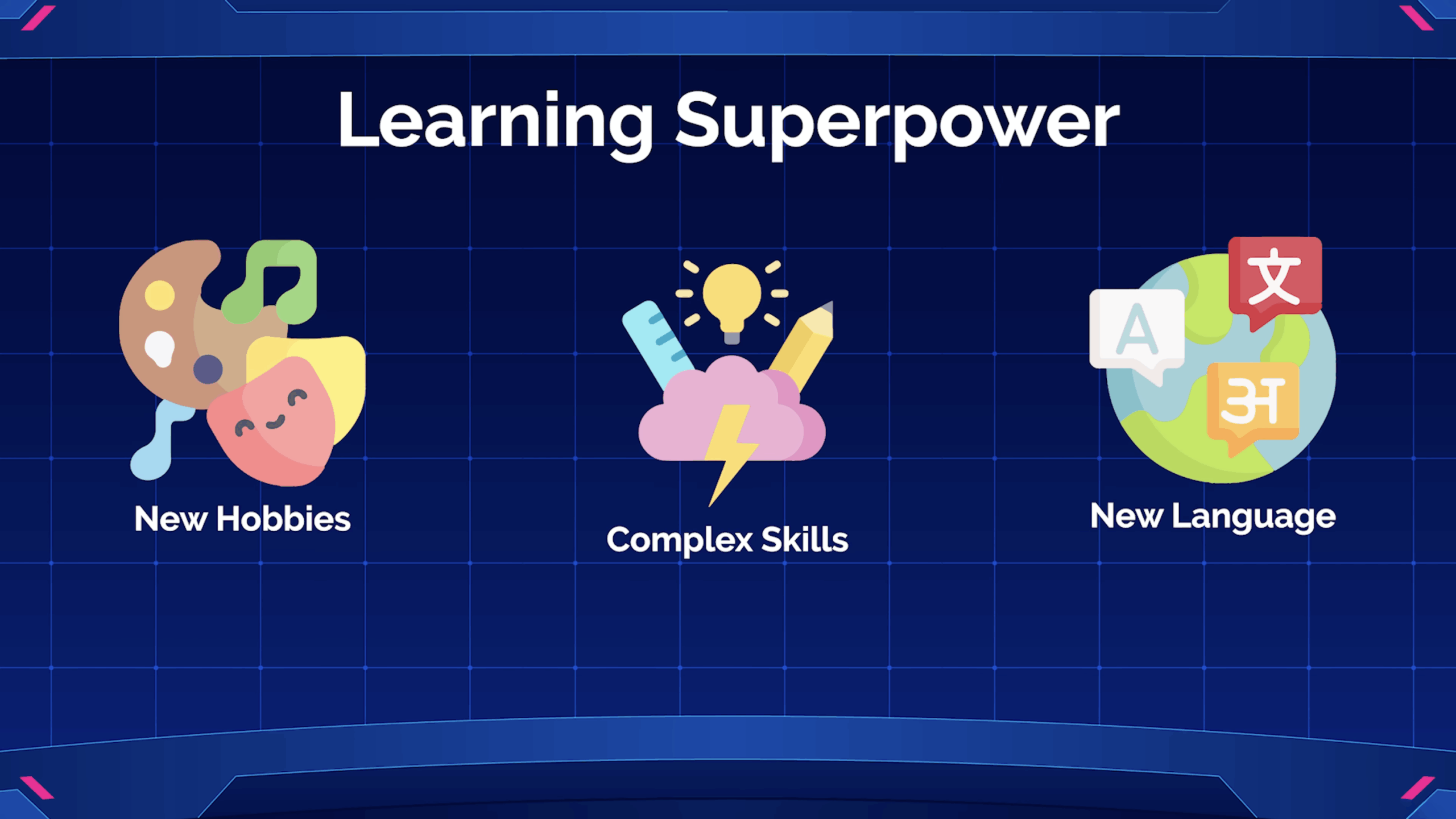
The fourth perk might be the most valuable in the long term: your brain gets rewired to become a learning machine. Medical school forces you to retain massive amounts of information and read at lightning speed—skills that transfer to everything else you do.
You’ll pick up new hobbies, complex skills, or even entirely new languages remarkably quickly, impressing your non-medical friends. Want to learn guitar? Your memorization skills from anatomy make it easier. Interested in coding? The logical thinking you honed from years of clinical reasoning gives you a huge advantage.
You can blaze through the rules of a new videogame or deep dive into any brand new hobby in half the time because you know how to take in, process, and retain information in a fraction of the time it takes others.
This gives you a major advantage in understanding virtually anything, from complex board games to learning TikTok dances to investing. Learning really will become your superpower.
The pattern recognition skills you develop from diagnosing patients make you better at solving any problem. You become that person who can quickly identify the root issue and figure out solutions, no matter what life throws at you.
This enhanced learning ability opens doors to our final hidden perk.
5 | Career Goldmine
The last advantage is that an MD opens doors to numerous career opportunities. A medical degree is a golden ticket to countless side hustles and career pivots.
Lawyers pay doctors serious money to serve as expert witnesses—sometimes $500-1000 per hour just to explain medical concepts in court. Medical writing, consulting for health tech companies, and advising biotech startups are all lucrative opportunities that utilize your existing knowledge.
If you want to become a medical influencer, you start from day one with built-in credibility that takes other content creators years to build. Your posts about health topics automatically carry more weight than those without medical training.
Want to transition into business? Healthcare companies are desperately looking for people who intimately understand both medicine and business. Your medical background makes you invaluable in industries far beyond traditional practice.
The combination of scientific training, problem-solving skills, and the respect that comes with an MD creates opportunities that didn’t exist before you became a doctor.
If you’re wondering whether medicine is right for you, this is exactly what it takes to become a doctor.

